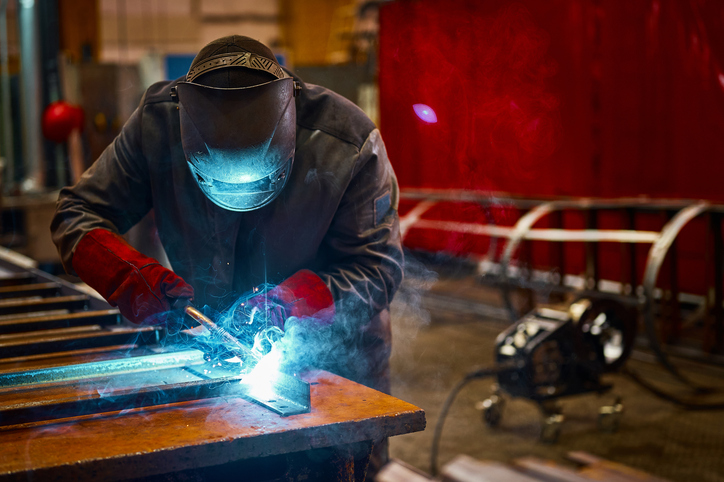When sourcing metal components, it’s easy to assume that any fabricator with the right equipment can meet your needs. But there’s a sharp divide between job shops and metal fabrication contract manufacturing providers—and it matters. Choosing the wrong type of supplier can lead to production delays, inconsistent quality, or supply chain disruptions.
Understanding the difference isn’t just a matter of semantics. It affects how well your partner can handle volume, manage complexity, and align with your long-term goals.
What Is a Job Shop?
A job shop typically focuses on short-run or one-off production. These shops take in work on a per-quote basis, often handling a wide variety of parts for different customers with little continuity between jobs. They are generally built for flexibility, not repetition.
If you need a single prototype or a small quantity of a custom bracket, a job shop can be a cost-effective and fast option. However, they may not be structured for scheduled releases, quality control tracking, or inventory programs that larger production environments require.
Key characteristics of a job shop:
- Runs small batches or single jobs
- Bids on projects individually
- Offers limited scheduling predictability
- Maintains minimal process documentation
- Operates without formal quality systems or certifications
Job shops often excel at custom work, quick turnarounds, or one-time fabrications. But when consistency, scalability, or integration into your supply chain is essential, metal fabrication contract manufacturing becomes a better fit.
What Is Metal Fabrication Contract Manufacturing?
Metal fabrication contract manufacturing is designed for repeatable production. These metal product manufacturers are structured around long-term relationships and volume-based work. While they may also have flexibility in processes, like cutting, bending, forming, and welding, they offer more robust systems for scheduling, quality assurance, material handling, and documentation.
A contract manufacturer is not just a supplier. They’re a production partner who works with your team to deliver to forecast demand, manage part revisions, and align delivery schedules with your operations.
Typical characteristics of a contract manufacturer:
- Has engineers to perform design for manufacturability (DFM) analysis
- Does prototyping prior to full production to ensure a smooth transition
- Produces repeat parts to spec over time
- Offers production planning and release scheduling
- Offers secondary services, such as machining, hardware insertion, subassembly, and electromechanical assembly and testing.
- Invests in a range of certifications, including ISO 9001:2015, ITAR, UL, and more.
- Maintains quality documentation and traceability
- Can manage inventory programs and blanket orders
For companies producing equipment, enclosures, subassemblies, or brackets at regular intervals, metal fabrication contract manufacturing reduces the burden of resourcing, quality control, and communication overhead.
Why the Distinction Matters
The difference comes down to systems and scale. Job shops serve a transactional need. Contract manufacturers support a process. That distinction affects pricing, turnaround, communication, and risk.
Some examples of how this might play out follow:
- Lead Times – A job shop might not prioritize your repeat part if a larger or rush order comes in from another customer. A contract manufacturer will have scheduled your job in advance, protecting your lead time.
- Part Revisions – Job shops may not track revision levels or control old prints. Contract manufacturers typically implement engineering change control and will not build from outdated files.
- Quality Assurance – In a job shop, inspections may be informal. A contract manufacturing partner will follow defined quality procedures and can provide inspection reports if needed.
- Supply Chain Integration – Job shops rarely commit to long-term agreements. A metal fabrication contract manufacturing partner will collaborate with you to deliver to your forecast and even carry material or finished goods based on your volume.
- Total Costs – When partnering with a contract manufacturer, costs can be impacted by factors such as volume pricing, economies of scale, and reduced overhead in quality control and inventory management. Additionally, having one partner that can fabricate, assemble, and test your product reduces your time investment and can reduce total costs.
Which One Is Right for You?
If you’re early in product development, or if you only need occasional parts, a job shop might meet your needs. But for recurring production, especially with multiple part numbers, complex geometries with tight tolerances, or a need for consistent, reliable delivery, a metal fabrication contract manufacturer is almost always the better choice.
Look closely at your volume, schedule, documentation needs, and expectations for support. In many cases, a lower per-part price from a job shop can come at the expense of delivery, reliability, or quality assurance. The total cost of ownership often favors contract manufacturing when those factors are considered.
Not all metal fabricators operate the same way. Understanding whether you’re working with a job shop or a metal fabrication contract manufacturing provider can prevent costly misunderstandings and delays. If your business depends on consistency, documentation, and supply chain alignment, choose a partner that’s built for production and not just projects.
Choosing KAL Manufacturing for Your Needs
At KAL Manufacturing, we bring over 80 years of experience and a commitment to delivering high-quality engineered, highly complex, and repeating parts. Whether you require multi-axis machining, fabrication, or electro-mechanical assembly, our expertise in supply chain management and quality assurance ensures that your products meet the highest standards. With our ISO registration, ITAR compliance, and advanced technology investments, we deliver consistent, reliable solutions for medical, security, defense, and commercial markets.
Choose a partner that can scale with your needs, provide seamless integration, and ensure on-time delivery. Contact us to schedule a facility tour today and discover how KAL Manufacturing can meet your metal fabrication needs.

